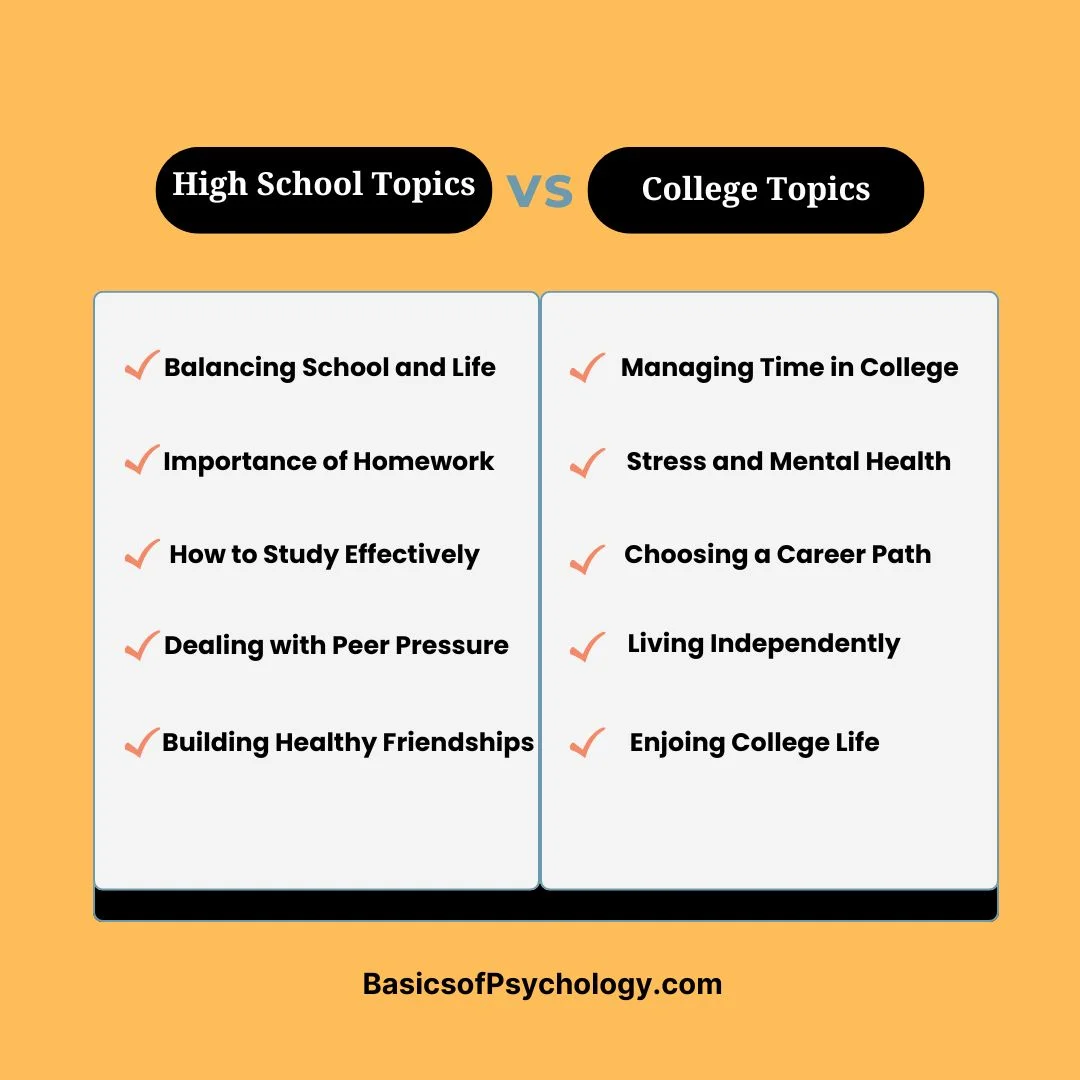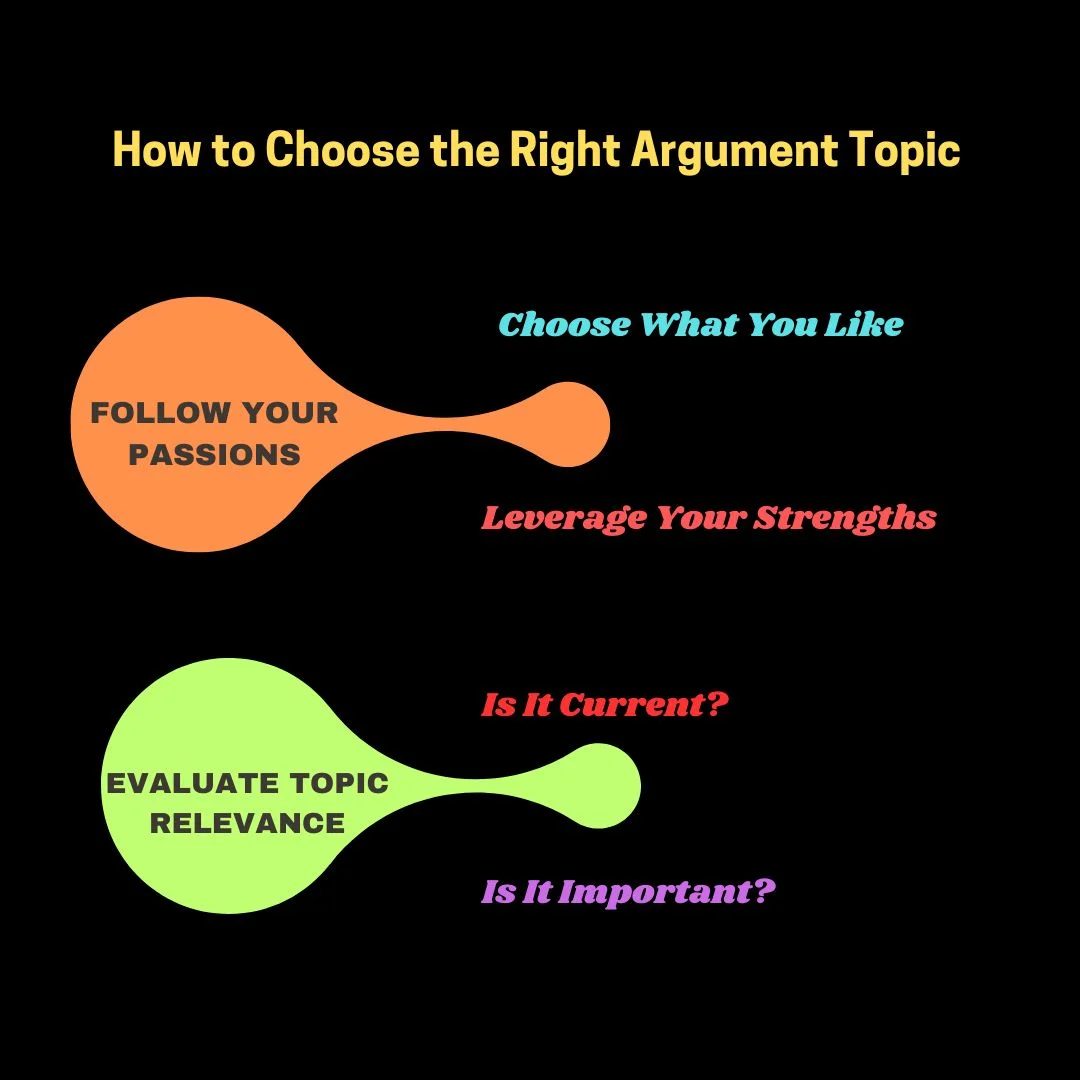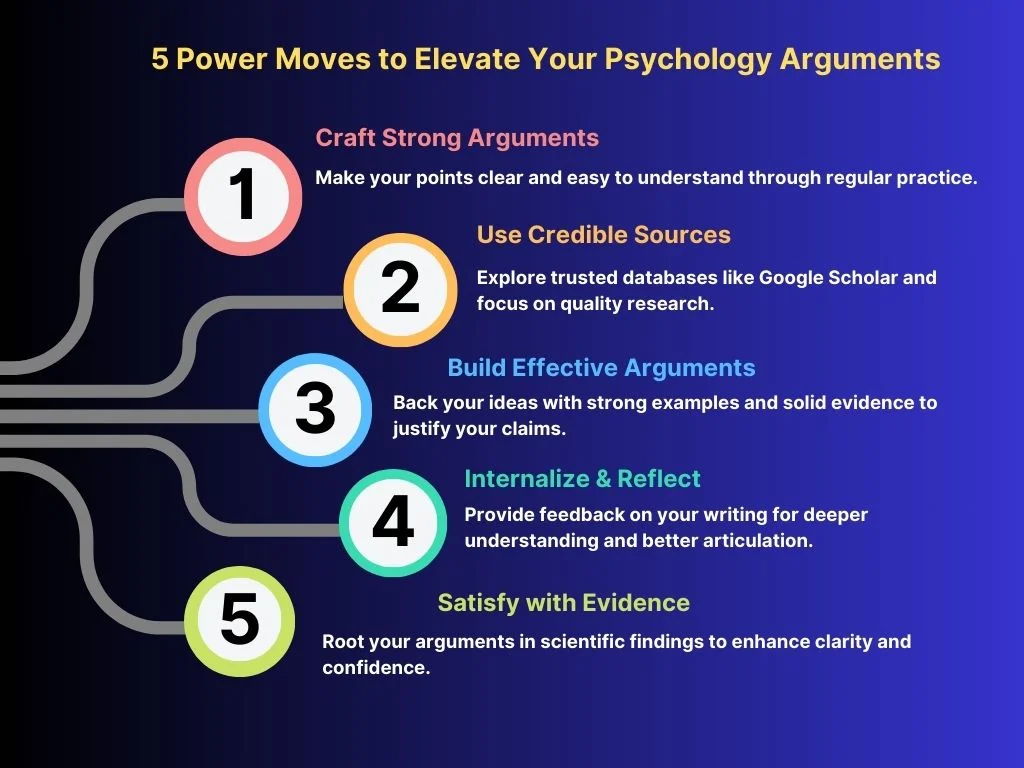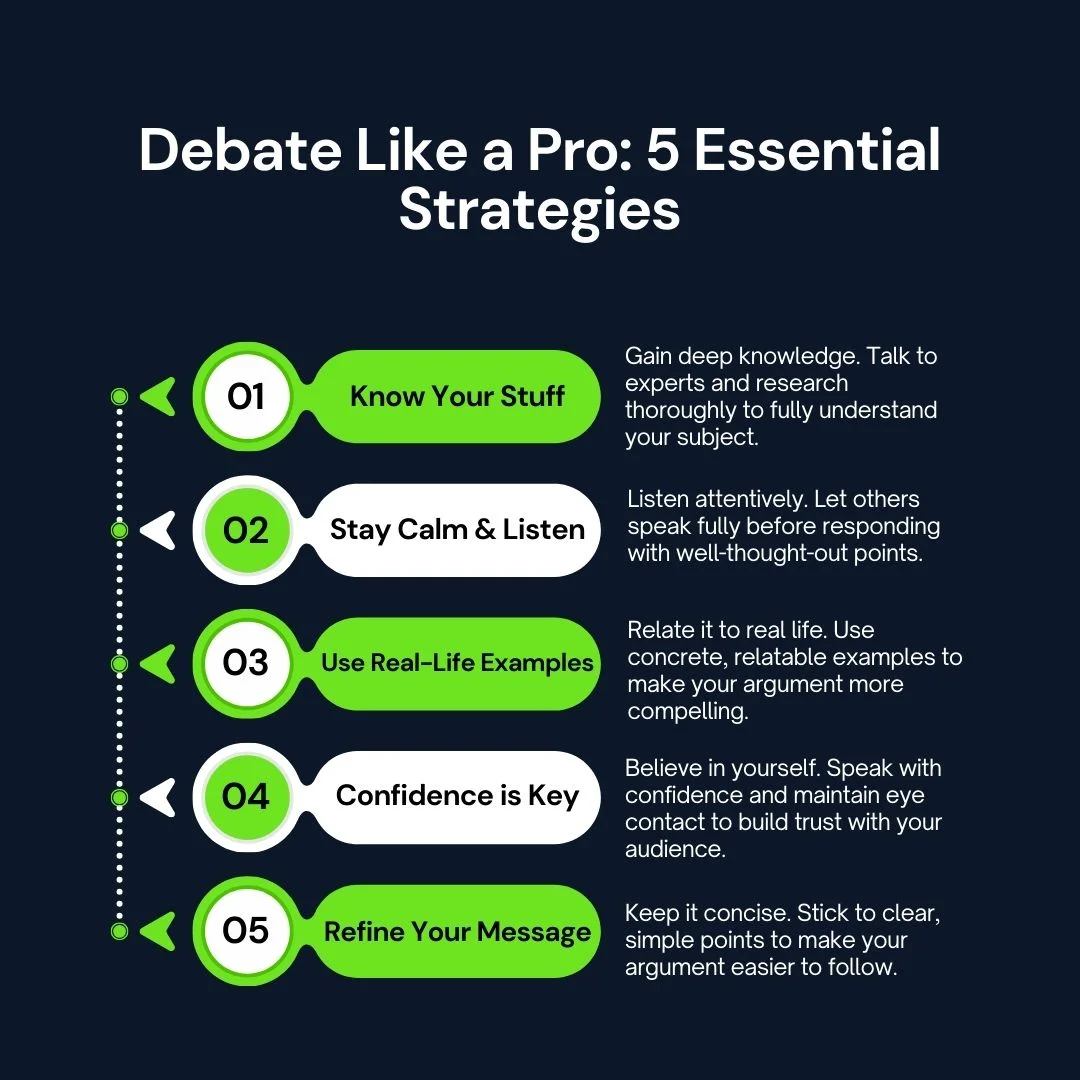Psychology Argument Topics You Never Knew Existed
Your brain will thank you for reading these unique topics.
- Content Reviewed by Dr. Emily Carter
Psychology is the study of how our minds work and how we influence behaviour. When people hold different opinions, disagreements arise and may lead to arguments or debates.
In school, you may write essays or take part in discussions on these topics. Understanding psychological arguments can improve clear thinking and strong writing.
Why Psychology Argument Topics Matter
It enlightens us and keeps us up to date with the newest trends in the field. When discussing psychology, the focus is on sharing ideas and learning, not on arguing. It’s like a game where everyone wins by understanding more.
Top Psychology Argument Topics
Topics in psychology are very interesting, covering a wide range of issues.
Suppose you like to work with your hands and touch what you are learning. Then, you should take part in a psychology experiment. It will help you to try various ways that may influence one’s behaviour.
“A good debate is like a well-tuned violin; it has harmony, rhythm, and structure.”
Some of the most popular ones include:
- Mental Health Awareness: Why is it important to talk about the mental health issue?
- Nature vs. Nurture: Is it the environment or genetics that shape our personalities?
- Social Media Effects: Is social media more bad than good?
- Child Discipline: "Should spanking be used as a form of discipline for children? Does the stress of studying help or hinder learning?"
- Emotions: How people become happy, sad, or angry?
- Memory: What ways do we use to recall information? Why is it that we forget?
- Behaviour: What compels somebody to act in a certain way?
- Mental Health: How do we take care of our minds?
- Learning: Why do some folks have a faster learning curve?
Popular Topics for Essays
When you look for a topic, it’s rewarding to present it interestingly.
Here are some popular essay topics in psychology:
- Impact of Social Media
- Benefits of Therapy
- Effects of Sleep on Mental Health
- Role of Family in Personal Development
- Understanding Emotional Intelligence
- Influence of Culture on Behavior
These topics are interesting to readers and match the current trends in psychology. Thus, they are also good choices for essays.
High School vs. College Topics
When selecting essay topics, it is useful to consider the differences between high school and college.

High School Topics
- Balancing School and Life
- Importance of Homework
- How to Study Effectively
- Dealing with Peer Pressure
- Building Healthy Friendships
College Topics
- Managing Time in College
- Stress and Mental Health
- Choosing a Career Path
- Living Independently
- Making the Most of College Life
Controversial Psychology Topics to Explore
Controversial topics in psychology spark diverse discussions and ideas without clear answers. There is much debate on them.
Here are a few to explore:
Hot-Button Issues in Psychology
- Screen Time: Many people are concerned about the impact of technology addiction nowadays. Some think it can be harmful, while others believe it's not a big deal. This topic will be very beneficial to you if you want to see the different angles of the issue.
- Social Media Impact: We rely on and value the Internet and social platforms. But many people argue that they make us either lonely or sad. Other people's perspectives everywhere are the catalysts of constructive debate. There are two sides to every issue, and the consequence of this is that we see how it affects us differently.
Current Debates and Research
- Punishment Methods: There are different views on how to handle a misbehaving child. Some people think spanking is a good way to discipline, while others disagree. It is a great discussion point for us to learn more about the many paths that lead us to be good guides for our children.
- Mental Illness Support: What can we do to help people with mental health problems? Some people think we need more help and care, while others think we're doing okay as we are.
“To engage in a meaningful debate, one must listen with the intent to understand, not just respond.”
These topics are important because they help us figure out how to help each other and make the best choices.
Argument Topics in Various Psychology Fields
Psychology has different interesting topics:
Developmental Psychology
In the field of developmental psychology, one can delve deeper into topics such as the effects of sleep on children’s learning, using a simple science experiment in middle school as an example.
- Nature Vs.Nurture: Do our genes or our experiences have a greater impact on our behaviour?
- Early Age Landmark: How does our childhood help us to be an adult?
Social Psychology
Social psychology research helps us to understand how people behave in a group.
- Peer Pressure: How does our behaviour change if we are with other people?
- False Prejudice: How much do stereotypes affect the way we see others and ourselves?
Some of these areas can give you brilliant psychology experiment ideas to test out in class or at a science fair.
Forensic Psychology
- What is The Truth of Eye-Witness Memory: Should someone assert what they have seen?
- Is psychology profiling: How do we aid the minds in finding the solution to crimes?
Sports Psychology
- Mental Toughness: Which mental skills are more important for achieving success in sports?
- Motivation in Sports: What is the Magic Formula of Motivation in Sports?
How to Choose the Right Argument Topic
Deciding on a good topic is vital. Here’s how to choose:

Identifying Interests and Strengths
- Choose What You Like: Be clear. Everyone should select a theme that is amusing or exciting. A task like this is more comfortable to tackle if you deal with a subject that you are likeable too.
- Think About What You're Good At Pick a topic according to your talents. This action can boost the quality of your write-up.
Evaluating Topic Relevance
- Is It Up to Date? Look for topics that are up to date, which will make your writing piece more interesting. New and fresh topics are trendier and more exciting.
- Is It Important? Reflect on the issue of importance before deciding on the topic. Interest should be crucial, as it would be the major motivation for the audience to read it.
Writing a Compelling Psychology Essay
Please manuscript like a pro with your writing skills. The following are the steps to be followed for the essay writing if successful:
“Great thinkers are not those who only present their views but those who engage with opposing ideas.”
Structuring Your Essay
A good start to your essay
- What are you going to write your essay on?
- Do anything to make it more attention-grabbing.
Insert Body Paragraphs
- Producing the main claim of each one, put a couple of sentences in the paragraphs.
- Use elementary language to get your point across.
Conclude with Conclusion
- Reiterate the primary things of your essay.
- Ask about the thesis as clearly as possible.
Making a Clear Thesis Statement
State Your Main Point
- What is it that you are trying to prove?
- It reveals to the readers what will happen.
Keep It Simple
- Write your thesis clearly and easily.
- Make sure everyone can understand it.
Supporting Your Psychology Arguments
Give strong and easy-to-understand arguments. Practice writing internally and provide your final feedback to better understand psychology.

Using Credible Sources
Dig into no one, in most cases, by going too much board to research, like perusing the library’s databases, Google Scholar, and articles in good magazines. It will build your arguments.
Building Effective Arguments
You can make strong arguments with clear statements.
For instance, you can justify all your theories by considering how sleep and the brain’s thinking process work so you can feel satisfied with your understanding.
For example, you might say, “Sleeping is way better for us to concentrate properly,” and then follow up with a scenario about how better the kids are when they are well-rested.
Specialized Psychology Argument Topics
Psychology has many different areas, and each has its topics to explore. Here are some simple ideas:
Behavioral Psychology
It is about understanding why people act the way they do. It looks at how rewards, like a treat, can change behaviour, such as helping kids do their homework on time.
Cognitive Psychology
This area studies how we think and learn. A simple topic could be whether playing video games is good or bad for our brains.
Educational Psychology
It focuses on learning in school. You might discuss whether kids should have more breaks at school to help them learn better.
Media and Social Media Psychology
This area looks at how TV, the Internet, and social media affect us. Using social media makes people feel closer to others or more lonely.
These topics help you explore different parts of psychology in an easy and fun way!
Winning Strategies for Psychology Debates
Psychological debates are like friendly arguments in which people try to persuade others to accept their theories. These discussions can be complex. The steps that guarantee a victory are simply the steps that ensure a victory.

Master it
Talk to an expert in the field you’re discussing to help you understand the topic better. Also, please read about the subject so you can explain it to others.
Be Calm and Listen
Listen with full attention when another person speaks. It would help if you got an idea of what to say after the other person finishes.
Refer to the Specifics
Give examples of situations where love is clear. You can use your own experience with friendships that make you happy as a great example.
Believe in Yourself
Speak confidently and make eye contact with your audience. When you are self-assured, others will have more confidence in what you say.
By using these techniques, you can become a strong debater and effectively communicate your ideas in a way that everyone can understand!
Final Thoughts
Understanding how people’s minds, learning, and behaviours develop is essential. Psychology argument topics serve as a valuable tool for gaining this knowledge. Simple things can help people have good ideas and have fun every day.
Remember to use real and reliable sources, such as books or experiments, to support your points. Start by explaining your reasons clearly and connecting them to your own experiences. Be curious and ask questions.
By following these steps, you can excel in psychology essays and debates by explaining your concepts in the simplest way possible!













